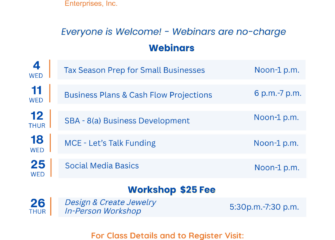
By Cathy Diekmann
Most people know that the sooner you begin saving for retirement, the better off, financially, you will be at and beyond retirement age. Compounding interest is a wonderful thing. Considerably fewer people know how to prepare for the impact of taxes on retirement. Getting that right can make a big difference in your ability to protect your retirement savings and avoid penalties. For most people, that takes the help of a skilled financial professional.
On March 10, 2021, Robert Jeter, CFP®, CRPC®, Vice President & Financial Advisor for InFocus Financial Advisors, Inc., led a virtual webinar entitled “Tax Planning in Your Retirement Years.” The webinar was hosted by the Salisbury Area Chamber of Commerce. Big Lesson Learned: What you don’t know could hurt you.
According to IRS.gov, nearly 30 million tax returns a year include an underpayment penalty. This may not seem like a big deal now, but it can become a bigger deal and expense in retirement. Retirement income may originate from three different sources: pension, Social Security, and investment withdrawals. The taxpayer is responsible for withholding the correct amount from each source of income. Added to that is the nature of tax law – it’s always changing! Yet, it is always the taxpayer’s responsibility to know the law and pay accordingly. If you don’t get it right, you will pay more in taxes.
If you have a 401(k) or other qualified IRS plan such as a 403 (b) 457 (b) or SEP IRA, you must begin taking requirement minimum distributions (RMDs) every year, by April 1 of the year after you reach age 72. Understanding the nuances of RMD’s is important – and it is also complex. If you don’t handle your RMDs correctly, you could be in for an unexpected spike in your taxable income and therefore, move into a higher tax bracket. You could also face a 50% penalty on any portion of the required amount that isn’t withdrawn by the deadline.
Jeter noted, “People tend to defer tax liability, but eventually, it comes home to roost.” That means, if you keep deferring your tax, you will have bigger RMDs in retirement. If you delayed Social Security payments, your tax liability could be on the increase. In that event, a Roth conversion might help you generate more tax-free income and lead to a lower tax rate in the future. But beware: a Roth conversion is a taxable event, so timing is everything. Jeter added “You need to pay attention to where you are with Social Security.” While that amount is identifiable on your IRS tax return, again, what that means in the big picture of your “Taxable Pie” will likely require professional financial guidance.
Jeter also covered the benefits of current, historically low tax rates related to the Tax Cuts and Jobs Act, utilizing Qualified Charitable Deductions (QCDs), the implications of Social Security taxation, and planning for Medicare premiums.
Indeed, the message was clear: if you have income and intend to retire, the earlier you make a sound financial plan, the better off you will be.




